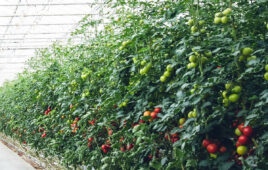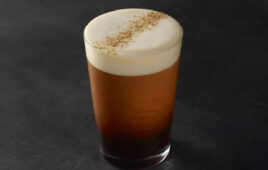 Farmhouse ale is an ancient European tradition where farmers brewed beer for their own farm hands from their own grain. Farmhouse ale has a large variation in the ingredients and brewing process used, with each brewer learning to brew and follow traditions from the preceding generation. In France and Belgium, these traditional summer beers were typically made in the winter and drunk all summer long during crop planting, maintenance and harvest. In areas where they had enough grain, farmers would use beer as the everyday drink. The beers were made with seasonal workers who tended the crops, also known as saisons in French, and not with the highest-quality ingredients that people are accustomed to.
Farmhouse ale is an ancient European tradition where farmers brewed beer for their own farm hands from their own grain. Farmhouse ale has a large variation in the ingredients and brewing process used, with each brewer learning to brew and follow traditions from the preceding generation. In France and Belgium, these traditional summer beers were typically made in the winter and drunk all summer long during crop planting, maintenance and harvest. In areas where they had enough grain, farmers would use beer as the everyday drink. The beers were made with seasonal workers who tended the crops, also known as saisons in French, and not with the highest-quality ingredients that people are accustomed to.
A farmhouse ale is a broader category of styles such as a saison, bière de garde, gueuze or sahti. Over time, war and shifting ownership of land split the homeland of farmhouse ales, and two primary styles of the ale became popular. The Belgians stuck with saison, which means “season” in French, for its hoppy, crisp, tart and sessionable qualities. The French brewed more bière de garde, meaning “beer to keep” in French, which has more earthy, funky and slightly sweet flavors.
Overall, farmhouse ales tend to be more bitter and tart than a traditional ale, but without being especially sour, compared to a sour ale The farmhouse style essentially owes much of its style to the yeasts. A farmhouse ale is brewed with a specific type of yeast often cultivated in the wild that is known for its ability to produce a distinctively earthy, tart and slightly funky flavor. Farmhouse ales are also typically unfiltered, meaning that they retain all of the natural flavors of the hops.
Farmhouse ales are crisp, with a blonde-looking color and may be made with a variety of grains, including wheat, oats and rye along with fruit, spices, and herbs that may be added for flavor. They are generally brewed with a lower alcohol content, a higher carbonation level, and can be enjoyed either young and fresh, or aged and cellared. Many farmhouse ales are bottle-conditioned, meaning that they continue to ferment and develop in the bottle. This can lead to interesting and complex flavor changes.
Over time, farmhouse ales have evolved into a diverse range of styles, each with its own unique flavor and characteristics. Thanks to the craft beer movement, farmhouse ales have been revitalized and modernized for the beer crowd looking for something they haven’t tried before. Farmhouse ales are known to be refreshing, flavorful and best enjoyed on a hot summer day.




